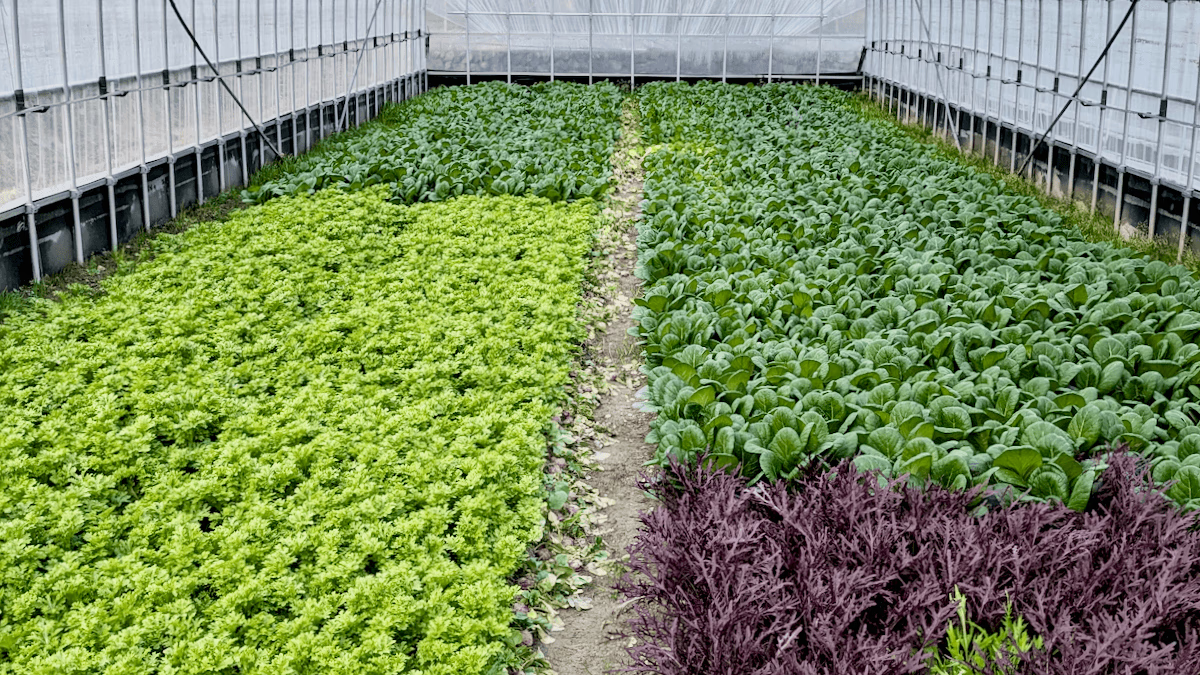はじめまして、MONOSUS社食研の青木です。
昨年3月に入社し、九段食堂でサラダを作っていました。
9月からはFarmMart & Friendsに異動し、今はドーナツやランチの製造を担当しています。
子どものころから食に興味があり、食べること作ること共に好きでした。
進路に悩んだ時、食をもっと深く知りたい、巷にあふれる食に関する情報(○○を食べれば痩せる!とか○○は体に悪いから摂ってはいけないなど)の本当のところを知りたいと思い、栄養系の大学に進学しました。
卒業後は管理栄養士として働いていましたが、今度は作る側をやりたいと思い、飲食店に転職しました。
勉強がてら食事に行ったあるレストランで感動したのは、前菜ででてきたサラダでした。
葉っぱが生き生きしていてフレッシュで、さあ食べて!と言われてるかのような一皿。
食べてみると食感がしっかりあり、野菜の味が生きている。食べていて嬉しくなるようなサラダは初めてでした。
そのころから食材や、それを作る人たちに関心を持ち始めました。
今回、MONOSUS社食研で取り扱っている野菜や加工品の生産者さんに会いに行くことが叶い、徳島・神山に1週間ほど滞在してきました。さまざまな方にお会いして、沢山インプットしてきたのでそれを皆さんにシェアしたいと思います。
つなぐ農園
神山で活動するフードハブ・プロジェクトが、お米・野菜・小麦・果樹などを育てている田畑を「つなぐ農園」と呼んでいます。つなぐ農園では畑や果樹園の見学、ケールやわさび菜の収穫を体験しました。
ハウスは10棟ほどありますが、種まき前から収穫後までの各段階の畑の様子を一度に見ることができました。
サラダで使っている野菜の畑での様子や、土に入れる肥料のバランスの話、種まきから発芽までプレッシャーがあることなど、実際に畑を見て、話を聞いて感じることも多かったです。
作る人と関係を築き、実際にどのように畑をやっているかを知ると、納品されたときに野菜のことをより想像できるという意味がようやく分かりました。
また市場を通さず、なるべく早くいい状態で野菜を届けられるのもメリットで、その点、農園のすぐそばで料理をするかま屋の食事は、抜群にいい条件がそろっていることを実感しました。
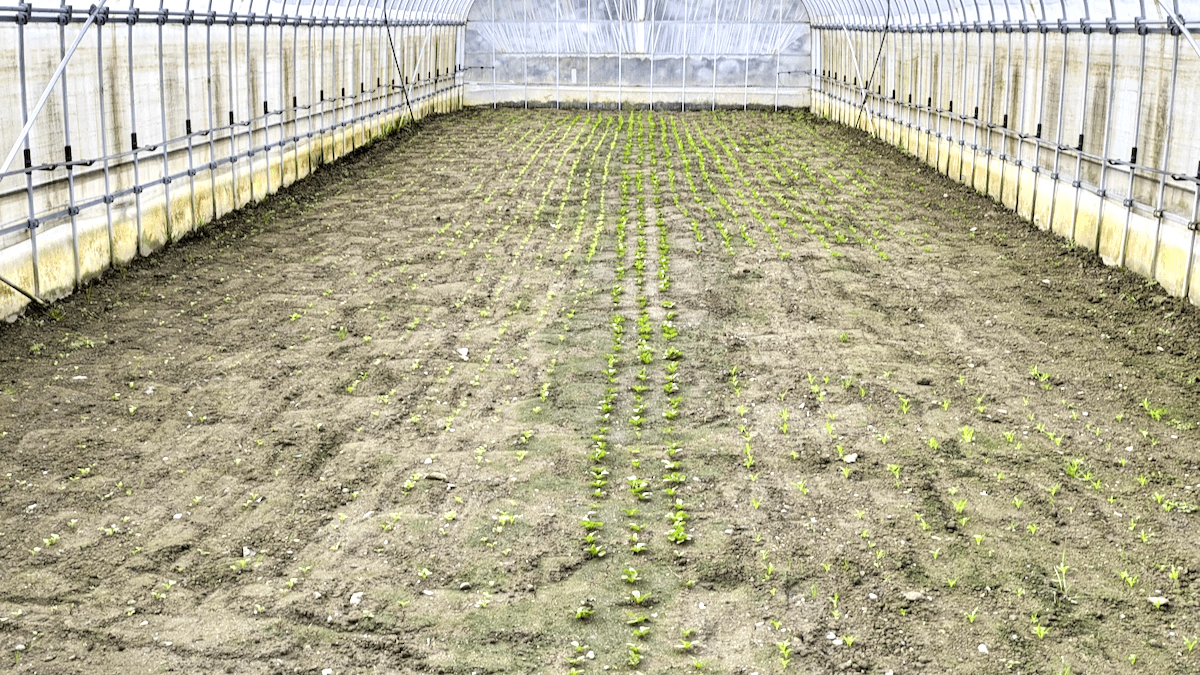
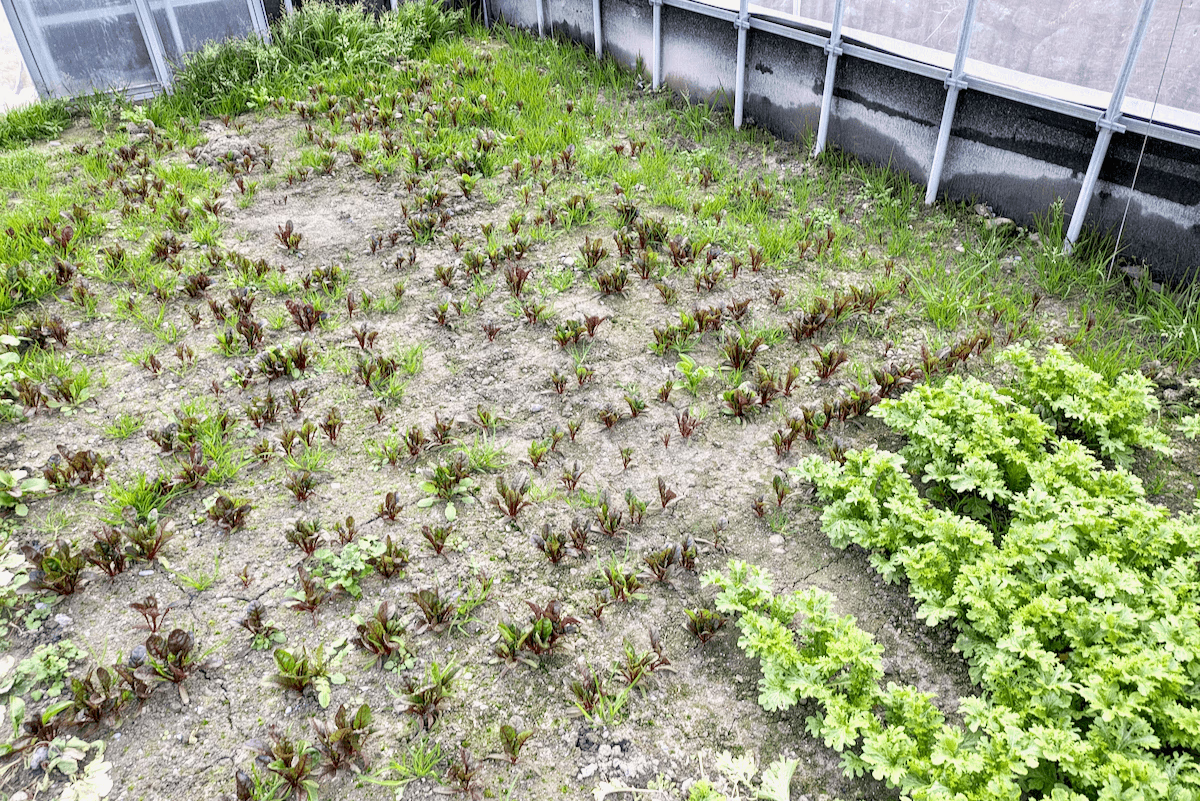
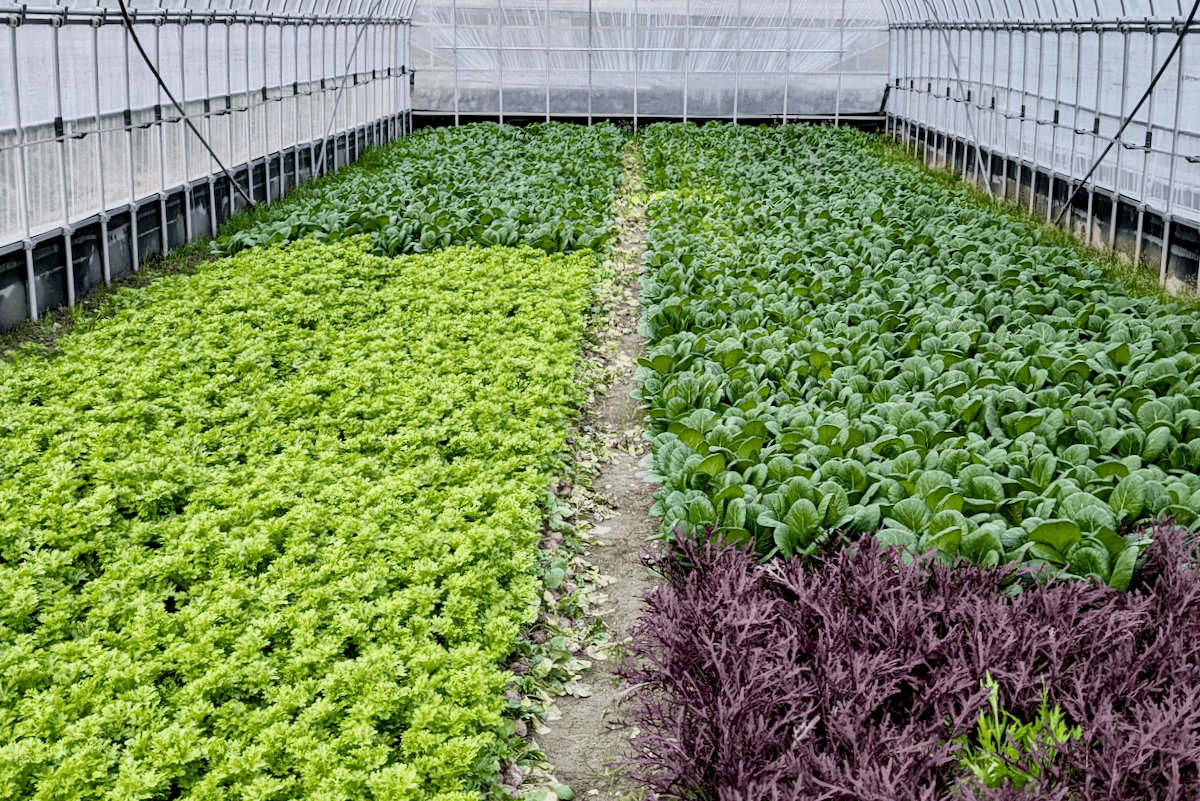
Oronono
つなぐ農園から独立し、2年が経つOrononoの松本さん。人参収穫の繁忙期でしたが、収穫のお手伝いをしたり、お話をお聞きすることができました。
神山は寒く、伺った2月は土が凍って人参の収穫はかなり大変だそうです。葉っぱが倒れてしまい、機械で取り切れないものは手で掘り起こしていくため、かなりの重労働。
それでも寒くなるほど糖度がぐんと上がり、みずみずしく美味しい人参ができます。
ともすれば効率に偏りそうになるところを、食べてくれる人たちの反応から初心に返ることもあるとか。神山では、作ったものを料理する人・食べる人がすぐ近くにいるので、そこがいいとおっしゃっていました。
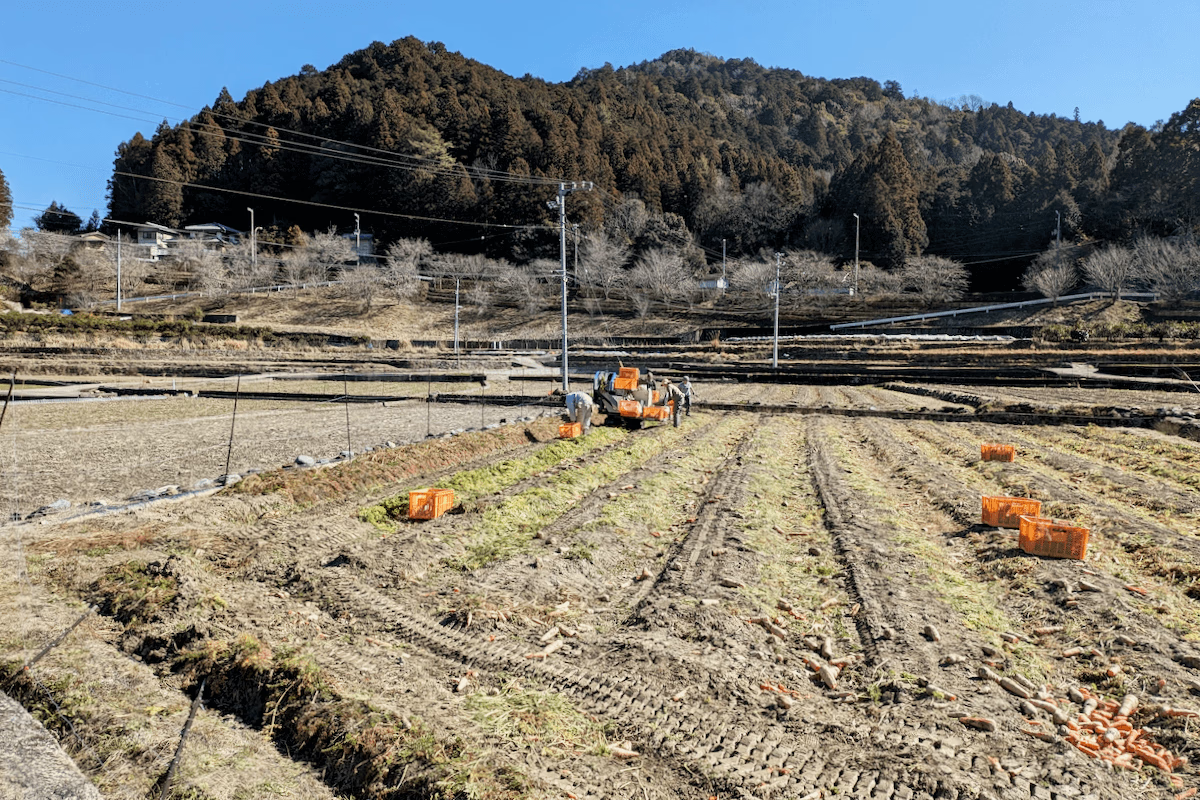
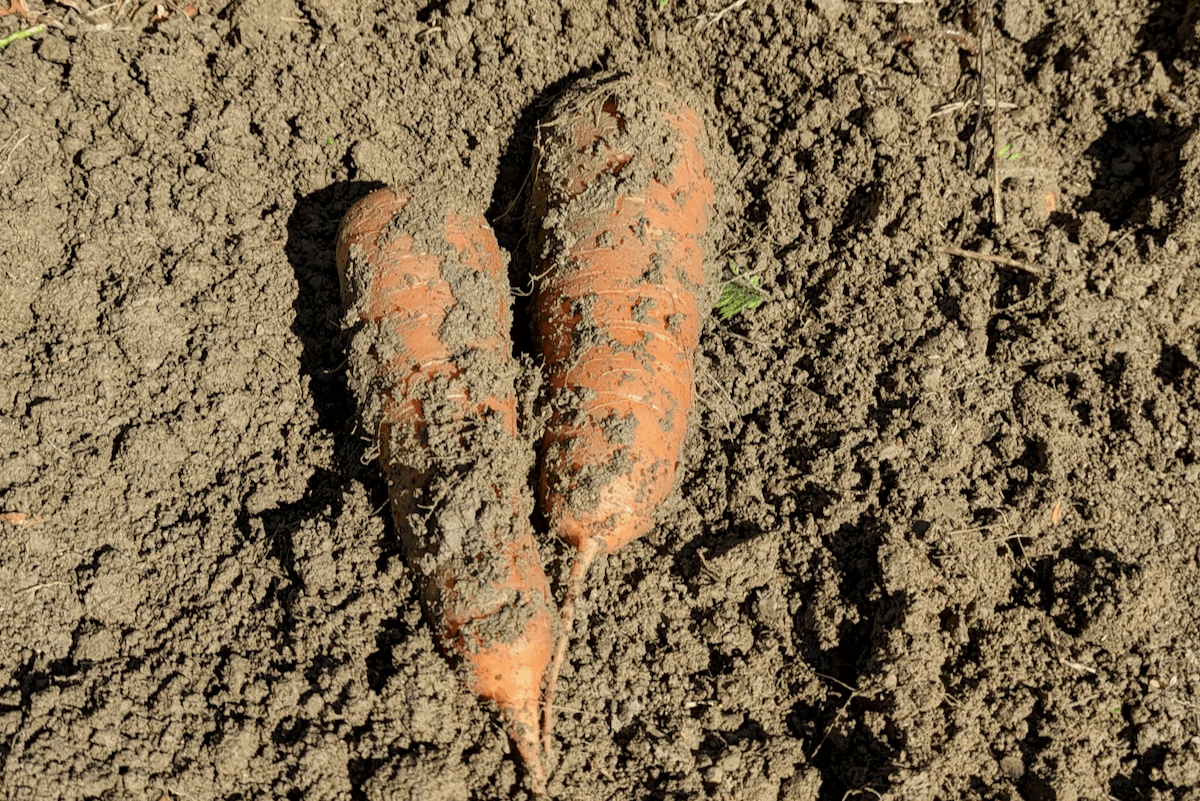
やさいのちえ
ちえさんには農業の難しさ、楽しさ、自分に合った働き方などのお話を聞くことができました。
○○を作りたい!だけではだめで、作る土地や環境、自分のペースに合っているかどうかなど、様々なことを考えていることを知りました。
また、ちえさんは町内に住む知人に野菜を配る「置き配」をされていました。自分の行動範囲内で、野菜のチョイスもおまかせ。生産者側が無理せずできることは、継続するうえで大切だと感じました。
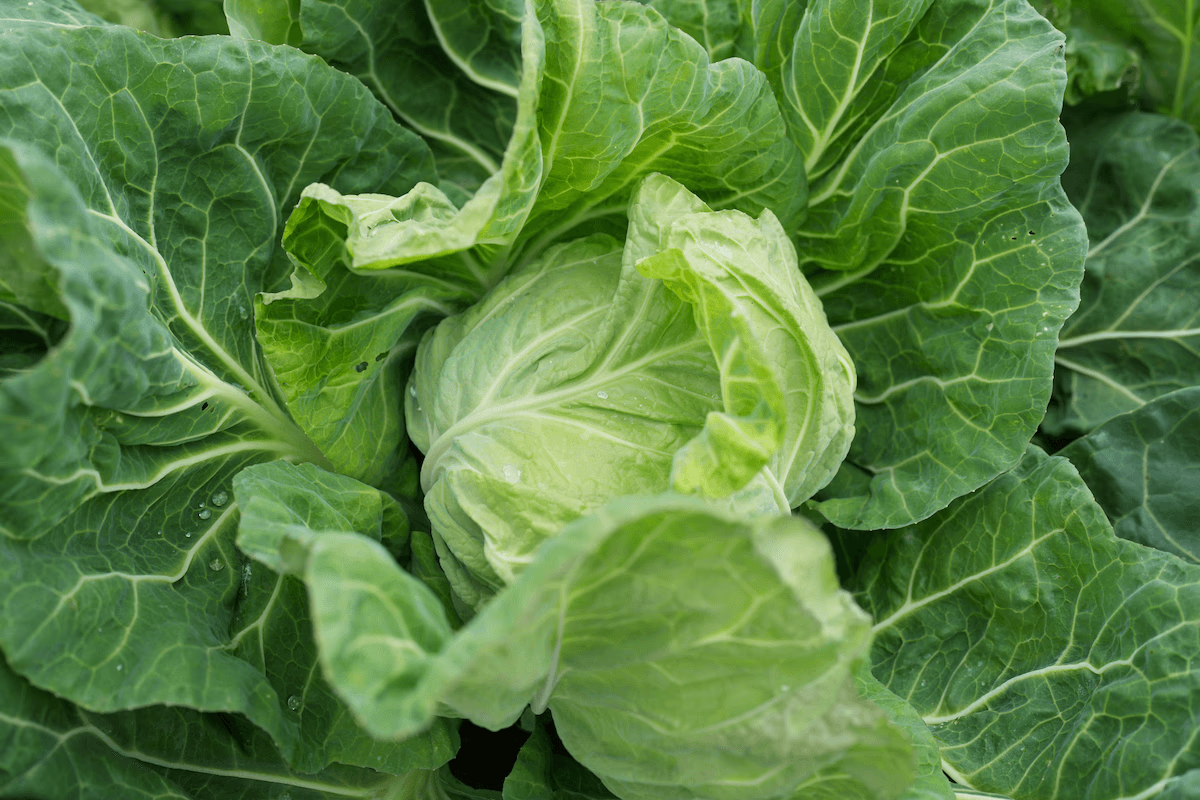
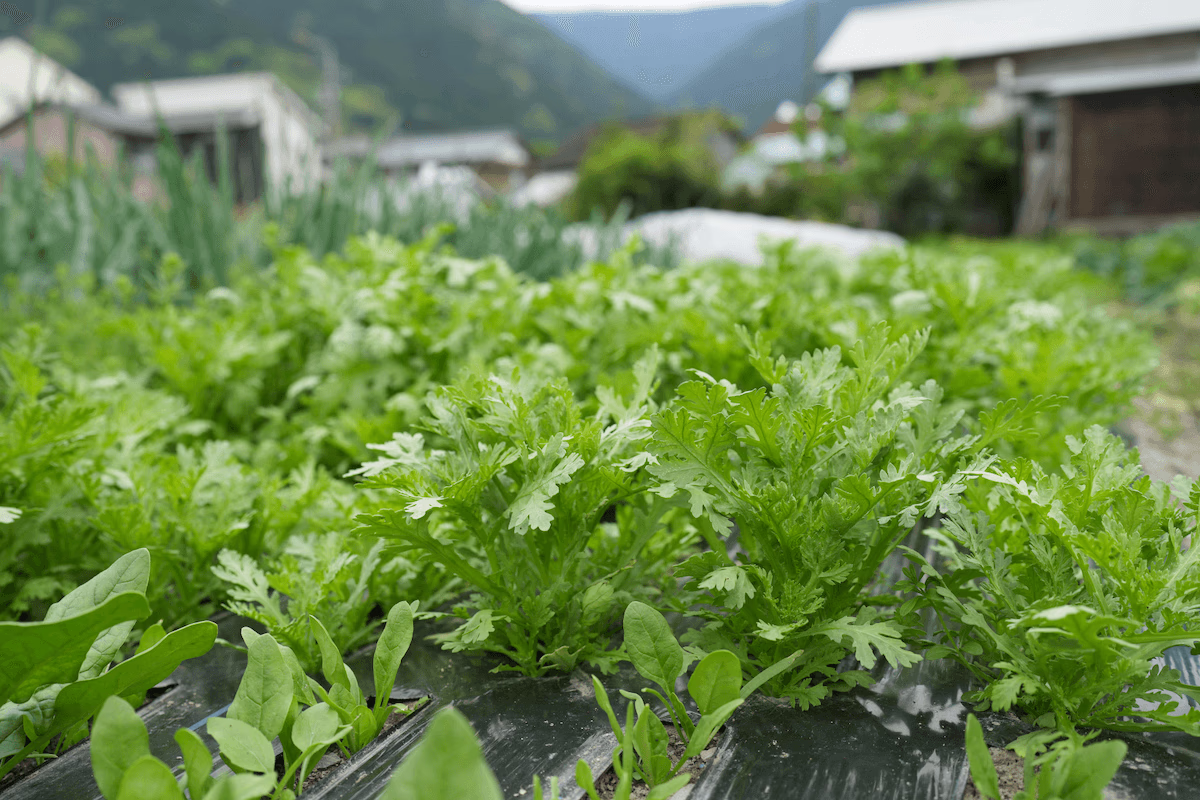
番外編 かまパン&ストア
私が現在、ドーナツの製造を行っていることもあり、かまパン&ストアで研修をさせていただきました。
パン屋さんの製造現場に入るのは初めてで、様々な種類のパン作りをみることができました。印象的だったのは、神山で作るパンは他の場所で作ろうとしても全く同じものはできないということ。神山の空気や、お店に漂う菌がパンの味、風味に関係するようです。
徳島から帰った直後は、着ていた服からかまパンのお店の匂いがしました。
短い研修期間で、こんな機会はもうないかもしれないと思い、製造責任者の大輔さんやメンバーに沢山質問をしてしまいましたが、まずは自分で考える大切さも教わりました。
すぐに正解を求めるのではなく、まずは自分で調べて勉強する。考えられる方法を一通り試す。自分でできるところまですべてやり切ってから、周りの人に相談する。
初めてのドーナツづくりで分からないことも多く、近道を選んでしまいがちですが、自分で考える工程をすっ飛ばしてはいけないなと改めて学びました。

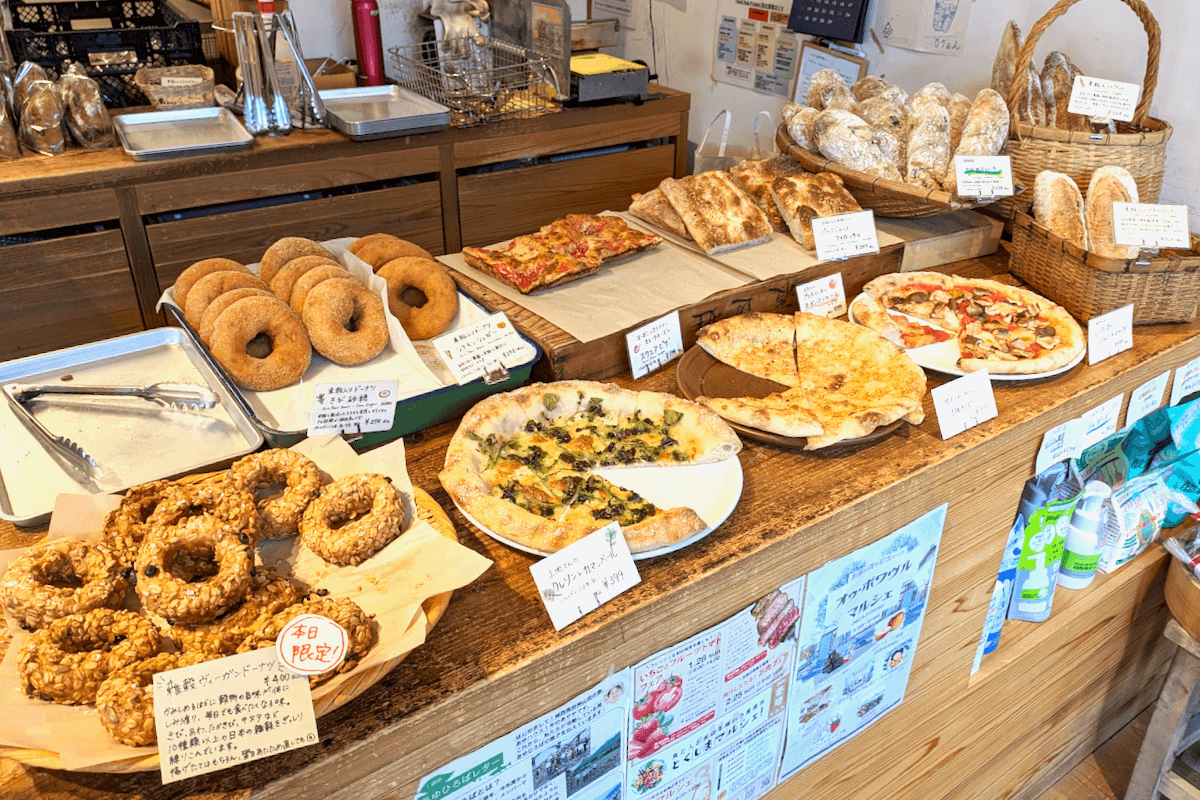
かまパンでは、FarmMartで製造販売している雑穀ヴィーガンドーナツも作らせていただきました。
販売の前日に試し揚げをしたのですが、いつもと違う環境でいつもの作業をする難しさを感じました。温度計がなく、カセットコンロの調理のため温度管理が難しく、ギュッと身の詰まったドーナツになってしまい、本当はもっと美味しいのにと悔しい気持ちになりました。
2回目は1回目の反省を生かし、かま屋さんに温度計を借り、作り方をきちんと確認し、準備をして臨みました。その結果、いつもの雑穀ドーナツに近い仕上がりになり、美味しい状態でお客様に届けることができました。
神山滞在中は、周りの方に様々な事を教えてもらったり、いただくことが多かったので、私から渡せるものとして雑穀ヴィーガンドーナツがあるのはとても良かったです。
生産者さんに会ってみたい、つながりを作りたいという希望がこんなに早く叶うとは思わず、なんとも嬉しい研修でした。
滞在期間中、様々な体験やお聞きした話がだんだん繋がっていき、点が線になっていく感覚がありました。
作る人の顔が見えたことで、今まで何気なく出してしまっていた食品ロスも、なるべく減らして美味しい状態で使い切りたいと思うようになりました。食べ物を作る人がいて、料理する・届ける私たちがいて、最後にお客さんのもとに届く。この流れを体感することができた貴重な経験でした。改めて、食は面白いなと感じました。
また、作る人の思いを知ってお客さんに届けること、作る人との信頼関係を築くことが大切だと実感しました。この研修で感じたこと、学んだことを忘れず、これからのランチやドーナツ製造に活かしていきたいと思います。
